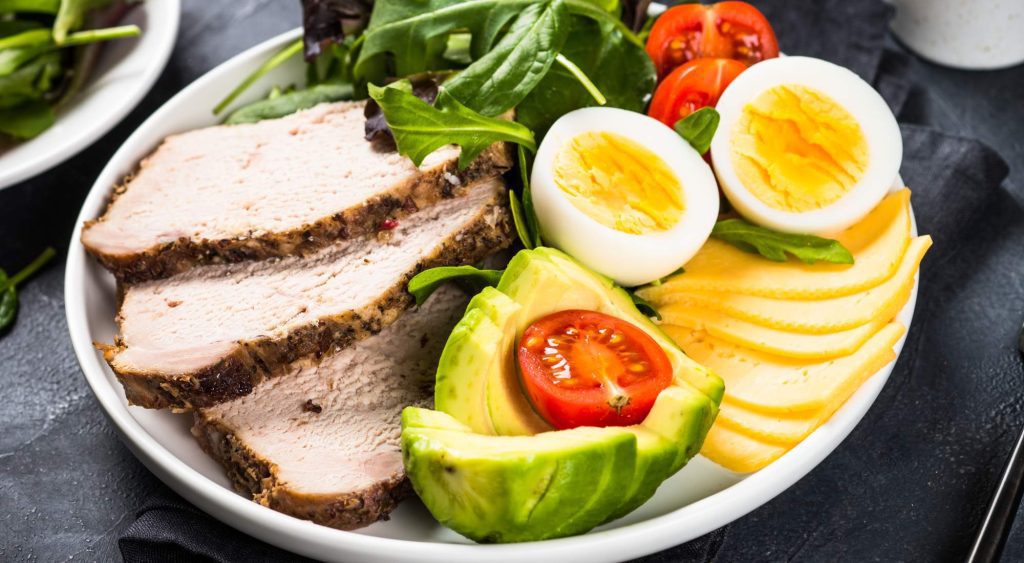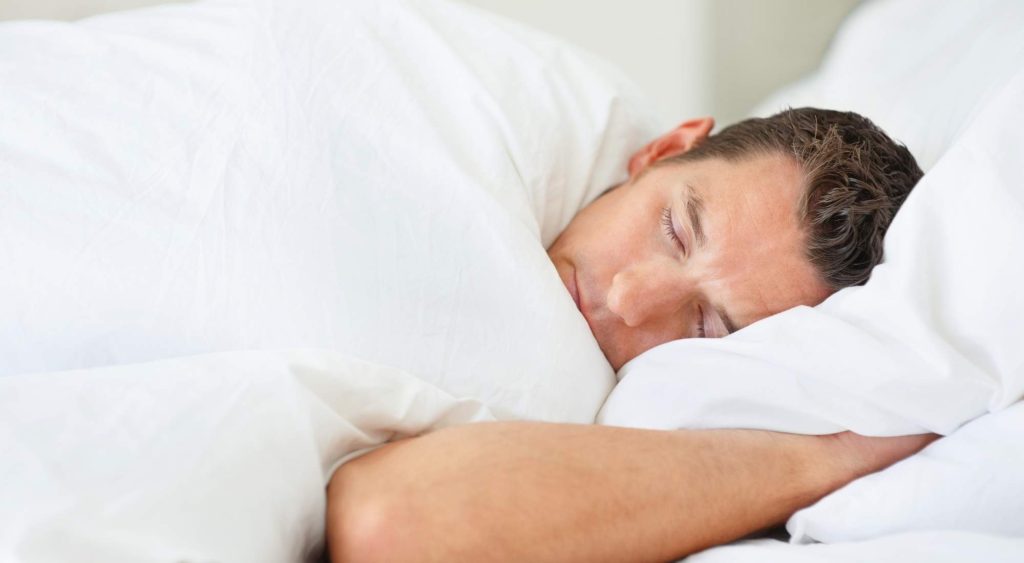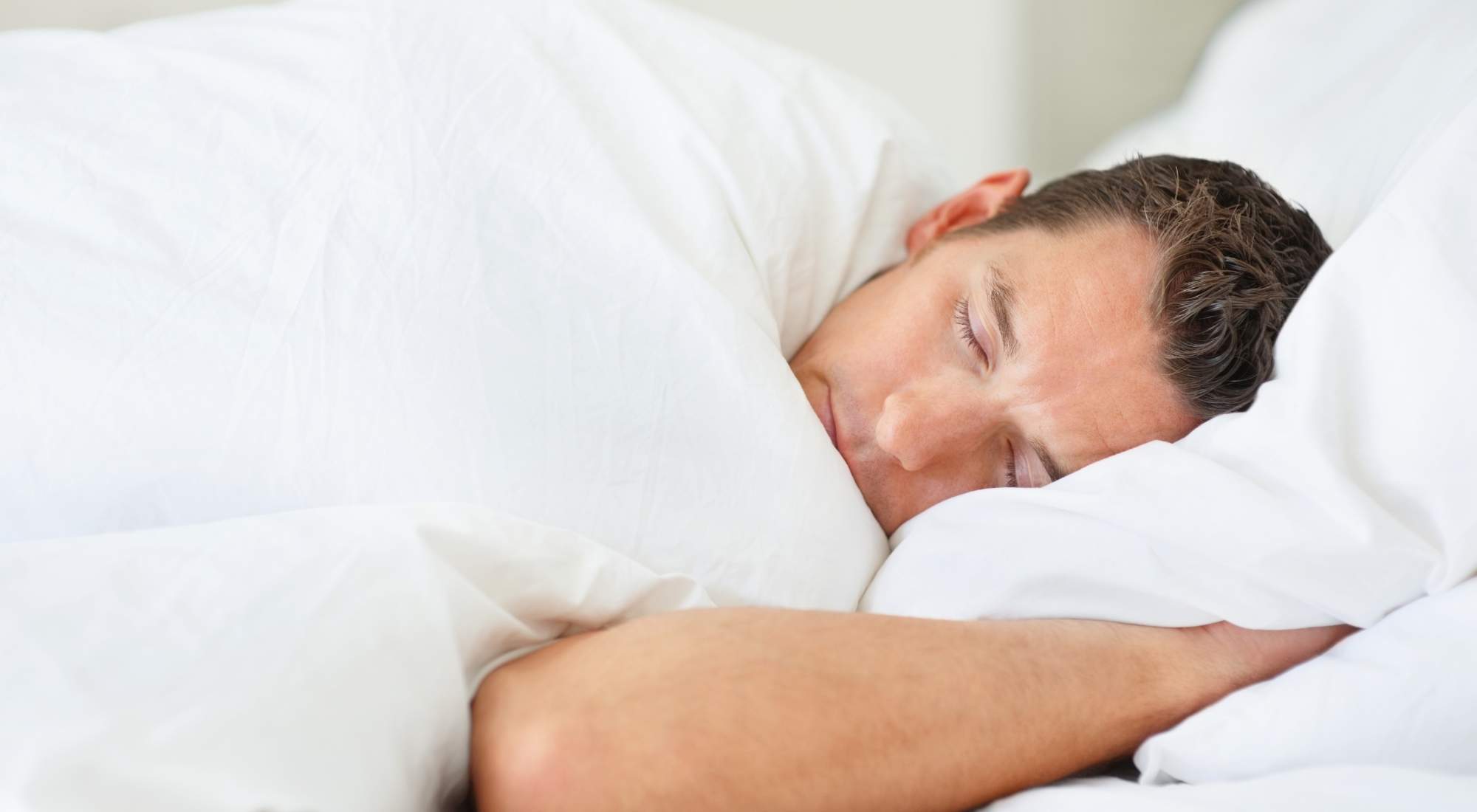You have started your Keto diet, combining protein and veggies like a champ. But you’ve noticed you are not sleeping as well as you used to. You wonder, “Is this normal?”
If you’ve got questions about the keto diet and sleep, we’ve got you covered.
Keep reading because this article will help you to understand how keto affects sleep and give tips for navigating from “keto insomnia” to a blissful night’s rest.

Table of Contents
- Does the Keto Diet Affect Your Sleep?
- Does Keto Improve Sleep? It Can — Here Are 7 Reasons Why
- Does Keto Negatively Affect Sleep? It Can, Especially at First — Here Are 3 Reasons Why
- Tips for Navigating From ‘Keto Insomnia’ to Restorative Sleep
- Keto Fitness Coaching: Do Keto the Right Way for Minimal Sleep Disruptions
Does the Keto Diet Affect Your Sleep?
The keto diet can affect your sleep both negatively (especially at first) and positively (after a few weeks).
However, it is essential to note that each person is unique and may respond differently to a keto diet.
Does Keto Improve Sleep? It Can — Here Are 7 Reasons Why
A better night’s rest. That sounds amazing, doesn’t it?
Let’s look at seven reasons why keto can help you have a blissful night of sleep.
#1: The Promotion of Adenosine Activity in the Body
Researchers find that ketogenic diets affect adenosine, a brain chemical that regulates sleep.
Throughout the day, adenosine builds up in the body. Over time, it reduces our alertness and wakefulness as the day progresses, promoting deeper sleep at night.
A ketogenic diet promotes adenosine activity in the body, thereby relaxing the nervous system.
#2: Reduction of Pain and Inflammation
Ketogenic diets reduce inflammatory markers due to their healthy fats and lack of sugar. Compared to a low-fat diet, keto is much better at reducing inflammation.
When sugar and processed foods are removed from the diet, inflammation and pain in the body and joints are reduced, resulting in a better night’s sleep.
#3: Lower Body Temperature
To fall asleep more easily, it is beneficial to have a cooler body temperature before bedtime.
On a keto diet, you are decreasing the number of carbs you eat. Since eating carbs raises our body temperature, indulging in them could negatively affect sleep.
Removing carbs and increasing protein can positively impact sleep quality. Get rid of those carbs, maintain a lower body temperature, and have sweeter dreams.
#4: Less Time Required During Sleep To ‘Detox’ and ‘Repair’
When your body is trying to detox from unhealthy foods, it has difficulty repairing itself. This happens while you sleep, so your body works hard, even though you are in dreamland.
It is clear that when inflammation persists, it makes it harder for things to heal. It is essential to improve healing over time to eat a diet low in sugars and carbs and high in anti-inflammatory foods, like those found on a ketogenic diet.
#5: Weight Loss
Generally, getting to a healthy weight can improve sleep.
Since the keto diet can help with weight loss, it can be a useful tool for improving your sleep
#6: Cortisol Regulation
Cortisol levels can be significantly affected by sugar.
In the body, cortisol plays an essential role as a stress hormone. Removing sugary foods from your diet can help stabilize stress hormones (like cortisol) throughout the day, allowing you to sleep better at night.
#7: Reduced Daytime Sleepiness
The more energy you have during the day, the easier it is to fall asleep at night. According to a recent study, patients who adhered to the keto diet reduced daytime sleepiness.
Additionally, if you have more energy during the day, you’re less likely to reach for a cup of coffee in the afternoon to stay awake.
What do you think of all this information about keto and sleep? Feeling overwhelmed?
Whether you’re new to keto or need accountability and support, Keto Fitness Coaching can help.
When it comes to health and fat loss, there’s no one-size-fits-all approach. That’s why we design a nutrition and fitness program tailored to your needs.
So what are you waiting for? Contact Keto Fitness Coaching today.
Does Keto Negatively Affect Sleep? It Can, Especially at First — Here Are 3 Reasons Why
Tossing and turning all night? Tired of counting sheep? Don’t worry. This can be normal at the beginning of implementing a keto diet.
Let’s take a closer look at three reasons you may have difficulty sleeping on keto.
#1: Creating a Metabolic Change Isn’t Easy
In the long run, healthy weight loss and weight maintenance will benefit your sleep. Sleep disorders such as obstructive sleep apnea will be less likely to occur, and as a result, you’ll sleep more comfortably and wake up feeling more energized.
However, losing weight without a sound, consistent sleep routine is not a smart move.
The key is to identify the eating habits that help you:
- Lose excess weight
- Maintain a healthy weight; and
- Sleep well
This could take some time, but it will be worth it in the long run.
#2: Lower L-tryptophan and Seratonin Levels
Generally, carbohydrates are the body’s primary energy source. They provide a constant supply of glucose and improve the entry of the amino acid L-tryptophan into the brain.
In addition to its role in the production of serotonin, L-tryptophan contributes to better sleep and well-being by calming the body. During sleep, melatonin, the sleep hormone, is converted from serotonin.
A ketogenic diet lacks carbs, so it doesn’t contain dietary L-tryptophan, which can lead to low serotonin and melatonin levels. What can you do? Ensure you’re eating enough of these minerals by NOT limiting your protein intake.
#3: Hunger Pangs
When adjusting to the keto diet you may feel hungry, especially at night, which makes it difficult to sleep.
If hunger strikes during the night, the brain becomes mentally alert, making it harder to get a full night’s sleep.

Tips for Navigating From ‘Keto Insomnia’ to Restorative Sleep
Save the Carbs You Do Eat for the End of the Day
Your keto diet allows you a few carbs, so savor them! It is best to enjoy these delicious indulgences later in the day rather than first thing in the morning.
Remember those hunger pangs we mentioned earlier? You may sleep better and wake up less hungry if you schedule your carb intake about four hours before bedtime. When you eat carbs for dinner, you give your body time to make the hormones that will allow you to sleep better at night.
Incorporate Sleep-Inducing Foods
As well as saving your carbs for the evening, you can also eat foods that induce sleep.
These foods contain significant amounts of melatonin, a hormone that helps you sleep:
- Eggs
- Fish
- Oats; and
- Bananas
Bananas aren’t just beneficial for melatonin. They are unique because they’re also rich in L-tryptophan and magnesium. Magnesium is a natural muscle relaxant that can assist the body and mind in winding down before bedtime.
If you want to add more magnesium to your diet, you can add the following:
- Avocados
- Nuts; and
- Tofu
Oats are another excellent choice to add to your diet. As well as promoting gut health, oats also contain essential prebiotics, which helps you sleep better.

Get Your Day Going With Exercise
To lose weight, most people combine diet and exercise.
You may be considering a new exercise routine if you have decided to try the keto diet. It’s a great idea, especially if you’re concerned about sleep quality.
Exercising in the morning can make you feel tired at night, allowing you to sleep longer and deeper. A physical activity program may also help you combat those pesky mood swings associated with the “keto flu.”
Additionally, avoid exercising too close to bedtime, as this may cause an unwanted surge of energy. Please note, you should eat your allotted carbohydrates and drink plenty of water when you combine keto and moderate to intense exercise.
Keep Your Electrolytes Balanced
The keto diet causes many people to lose electrolytes.
As part of their role in the body, these minerals:
- Support hydration
- Reduce the symptoms of insomnia
- Prevent leg cramps
- Promote energy; and
- Promote healthy cells
An Epsom salt bath before bed can improve sleep and boost electrolytes simultaneously. Magnesium is abundant in this salt, which your body absorbs directly through your skin during your soothing, warm soak. Add a few drops of chamomile essential oil to promote relaxation and sleep.
Bone broth is popular on keto because not only does it help you maintain healthy electrolyte levels, but it also contains an amino acid called glycine, which enables you to sleep better.
Keto Fitness Coaching: Do Keto the Right Way for Minimal Sleep Disruptions
Keto Fitness Coaching is dedicated to helping you become healthier, fitter, and happier.
We offer more than just keto diet planning. Together, we develop a customized plan that addresses:
- Getting rid of inflammation in your body
- Providing you with lifelong health tools; and
- Building a strong, lean body
Three coaching options are available to you:
- A one-time consultation with a keto nutritionist
- Coaching with a certified keto coach on a continuous basis
- Calculating macronutrients (macros) according to your specifications
Moreover, since our coaching sessions are conducted online, they can be accessed from anywhere in the world.
There is no charge for your first session, so what are you waiting for? Start creating the new you by contacting us today.
The content in this blog should not be used in place of direct medical advice/treatment and is solely for informational purposes.



